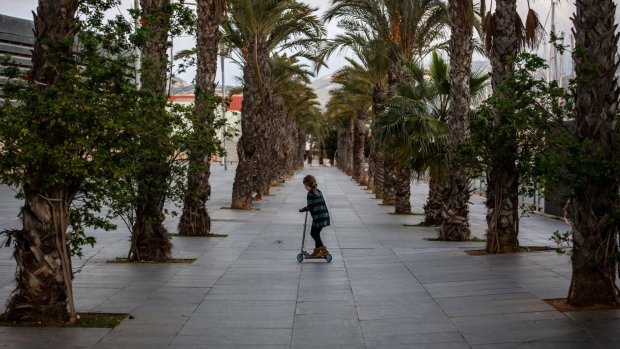Feb 6, 2022
$33 Billion Investment Industry Hit in Spain Loophole Clampdown
, Bloomberg News

(Bloomberg) -- Wealthy Spaniards are rushing to pull their money from a 29 billion-euro ($33 billion) investment vehicle industry as the government shuts down a tax loophole.
Wealth managers from Banco Santander SA to UBS Group AG have been busy in recent weeks informing Spain’s market regulator of their intention to close down the products, known as sicavs.
So far, more than 800 out of the 2,276 registered sicavs have announced their intention to close, according to the regulator, known as CNMV.
Spain’s parliament last year approved a legal change that tightened the tax regulation for sicavs, a product favored by well-off Spaniards as a cost-efficient way to wrap their investments. Podemos, a far-left party that’s Prime Minister Pedro Sanchez’s main partner in his Socialist-led coalition, had pushed for the change on the grounds that the vehicles make it easier for the wealthy to pay less tax.
Up to now, sicavs have paid a 1% levy on profit compared with the 25% rate for corporate taxes.
The structure of the vehicles requires them to have at least 100 investors. Bankers arranging them would typically have the main owner hold the majority of the shares, while naming associates to hold single shares to make up the necessary numbers.
Higher Rate
Under the new rules, each participant now has to have at least 2,500 euros invested in the sicav for it to keep benefiting from the low rate of tax. If that condition isn’t met, the tax rate jumps to 25%.
A vehicle worth 255 million euros set up for Sandra Ortega, the daughter of Inditex SA’s founder Amancio Ortega and Spain’s richest woman, will be closed as a sicav and the assets shifted to another type of vehicle, according to a regulatory filing Friday.
Santander has announced the liquidation of sicavs worth 436 million euros, while UBS has told the regulator it will close vehicles holding 332 million euros. Spanish asset managers at Credit Suisse Group AG and BNP Paribas SA have also said they will close sicavs.
Sicavs now have six months to either adapt to the new regime or be liquidated. If investors take that option, they can switch to other funds without being taxed for transferring their money.
©2022 Bloomberg L.P.